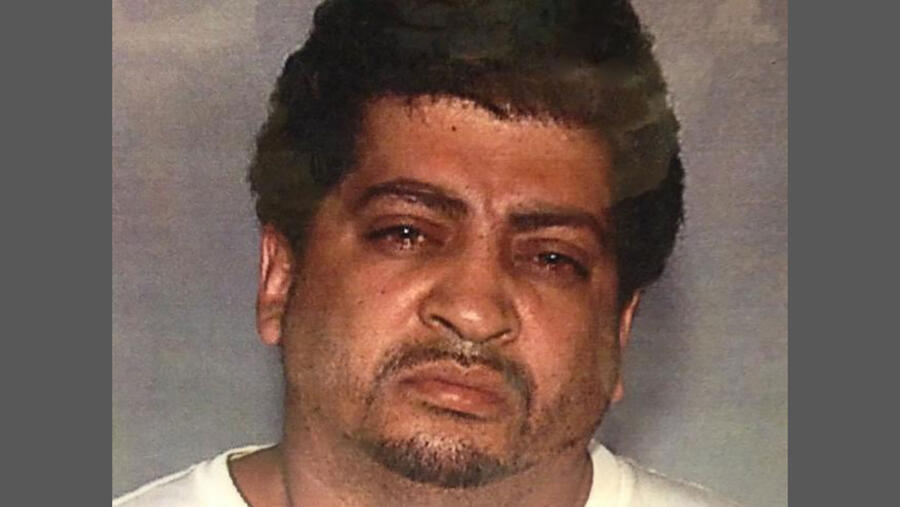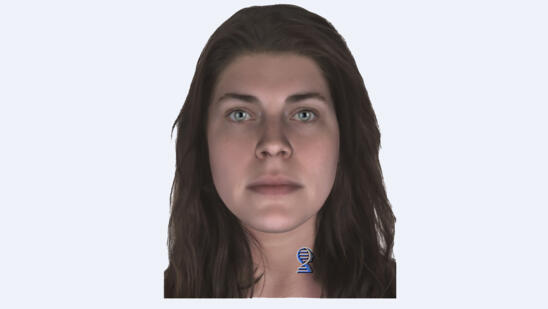“My brother did not just walk away from his family,” Ed Blackwood told New York City Police Commissioner Raymond Kelly in 2011. He was furious. It had been five years since his brother, Bruce Blackwood, had gone missing. Ed demanded that police open a murder investigation.
Bruce Blackwood managed an Off-Track Betting location and owned several rental properties in New York City’s boroughs. Very early into their investigation, police suspected that Luis Perez, a handyman who worked for Blackwood, had harmed him. They discovered that Perez, who had previously served 10 years in jail in Massachusetts for attempting to kidnap his daughter, attempting to stab the child’s mother and stabbing a state trooper, had forged 13 checks totaling $7,700 in Blackwood’s name.
Perez told New York City police a story about meeting with Blackwood on the day he vanished to talk about some renovations, saying that afterward, an unknown man in a black car picked up Blackwood. Cops found his story suspicious—and a neighbor said they saw Perez dismantling a power saw the day after Blackwood’s disappearance. But there was no evidence of an altercation in the apartment where the men had met. The police had even checked the pipes for blood. Perez would serve 25 months for the forged checks; Blackwood, alive or dead, was nowhere to be found.
Five years later, no witnesses had come forward. There was no body. But there was an outraged family and news coverage. That’s when the case was given to Wendell Stradford, a cold case detective, who hit the streets again. Ultimately, Stradford acquired Luis Perez’s brutally detailed confession, in which the killer likened dismembering Blackwood to slicing chicken.
Blackwood’s case was the subject of an episode of Cold Case Files on August 27, 2022. Stream the episode in the A&E App.
A&E True Crime spoke with Stradford, who spent 23 of his 37 years with the New York Police Department investigating cold cases, about the Blackwood case.
How did the Bruce Blackwood case end up in your hands?
Apparently, Police Commissioner [Raymond] Kelly had gone to a town hall meeting and Mr. Bruce Blackwood’s brother [Ed Blackwood] and a retired detective who he’d hired as a private investigator showed up. [Ed] stood up and basically said that the police department didn’t care [about Bruce’s disappearance] because Bruce was Black. Maybe a week later, I was called to police headquarters and told that I was taking the case.
When you’re given an old case with no body and no eyewitnesses, how do you start your investigation?
I go back—I read the entire file the previous detectives had. I’d look at it and ask, ‘Is there anything else that could be done that wasn’t done?’ I interview family members and friends, whose names were brought up in the original case folder. And then some additional people—[from] banks, credit card companies or a mortgage company.
You ultimately arrested Luis Perez, the original suspect.
It happens a lot. But I was not gonna go down that same rabbit hole [as previous detectives]—I looked at [Perez], and then I spread out and looked at some more things to see if other leads panned out. I wasn’t gonna focus on just one person.
What other avenues did you go down?
So, I mentioned the mortgage company—we saw that a property [owned by Blackwell] was being sold and that his assets were being transferred and taken over. But [Perez and an accomplice] who were accused of [stealing from Blackwood], they’d been in prison during the time that some of these things were being done. We wanted to find out: Maybe they had some compatriots they told [information to]? We discovered the person dispersing assets and selling things was Mr. Blackwood’s brother. I knew his brother wasn’t involved, but it gives the appearance of that.
We had people call and say, ‘There’s a garage sale going on at the missing guy’s house.’ We have to look into all of that. And it caused a lot of tension between his brother and me.
It’s important to do because when you do finally make an arrest, things like this come up. A defense attorney is going to ask ‘Well, what about this? What about that?’ And I have to have an answer for it.
To go back to Luis Perez, his daughter agreed to record her father. The content of her recording was so explicit, including details about how he dismembered Blackwood’s body. Why didn’t you think Perez could be convicted on that alone?
Because there was no body, and we were in the process of trying to locate another person who we believe witnessed the homicide. There were some other people who he had talked to about the homicide. We needed to corral them and get them to corroborate some of the things that were said on that tape.
How did she come to record this confession?
We had been going around interviewing different people. And the more people we interview for a case, the greater the chance [that] the bad guy is finding out we’re investigating their crime.
Perez’s daughter found out we had been around asking about Mr. Blackwood’s disappearance. I was at a hospital with a friend of mine, a detective, my old partner, who was dying; he was in a coma. And they called me from the precinct, saying someone was there about a homicide I was investigating. I went to meet her.
She said, ‘I heard you’re investigating the murder of Bruce Blackwood.’ And I said, ‘I don’t remember anybody ever saying there was a murder.’ She said, ‘My father’s name is Luis Perez, and he told me he murdered Blackwood. And I have a recording.’
She told me an abbreviated version of what he said to her. But she had recorded it on her cellphone, and when she played the recording for me, it was very poor quality. It was like she had it in a back pocket and hit record. And every time she walked, the sound would cut out. But you could tell he was talking about having killed someone.
She was willing to record him again. He was living with her at this point. I said, ‘If he’s gonna talk about it, let him talk about it; don’t prompt him.’ And she says, ‘That’ll be easy because he’s always bragging about how he got away with murder.’
What qualities does a detective need to solve a cold case like this?
You can’t do what everybody else did before. Maybe something will pop out to you that gives you that ‘a-ha’ moment. But you got to have patience and perseverance. Everybody has their own motivation for telling you that a case is not worthwhile. And you do have to keep working on your other cases. Several years can go by, but you’re not just going to put the box up on the shelf and let it gather dust. You say: ‘Today’s a good day for me to look at that case again, to see if I missed something.’ Determination—that’s what you have to have.
Related Features:
Vanessa Bennett on What It’s Like to Be the Lone Survivor When Your Family Is Murdered
How a Daughter Helped Convict Her Mother’s Killer—46 Years After She Identified Him
How Genetic Genealogy Helped Solve Christy Mirack’s Murder After More Than 25 Years


